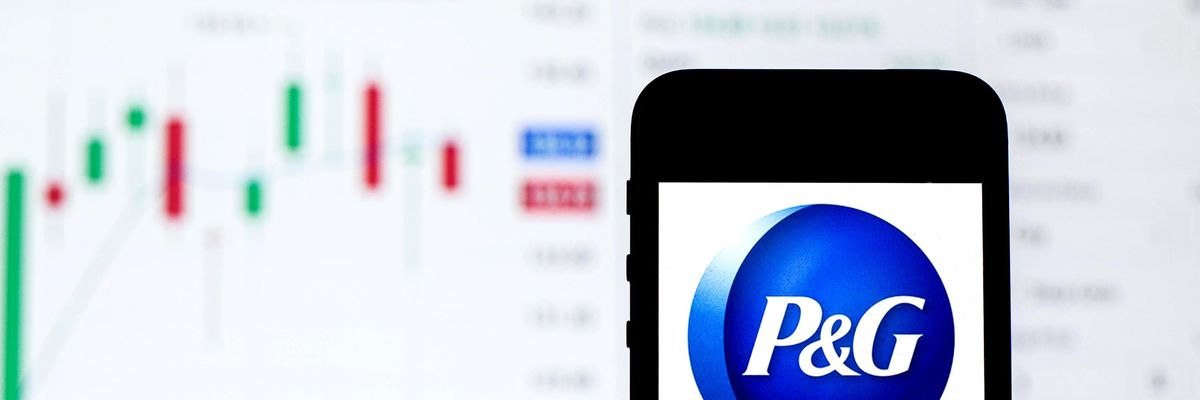The biggest culprit for rising prices that's not being talked about is the increasing economic concentration of the American economy in the hands of a relative few giant big corporations with the power to raise prices.
If markets were competitive, companies would seek to keep their prices down in order to maintain customer loyalty and demand. When the prices of their supplies rose, they'd cut their profits before they raised prices to their customers, for fear that otherwise a competitor would grab those customers away.
The underlying structural problem isn't that government is over-stimulating the economy. It's that big corporations are under competitive.
But strange enough, this isn't happening. In fact, even in the face of supply constraints, corporations are raking in record profits. More than 80 percent of big (S&P 500) companies that have reported results this season have topped analysts' earnings forecasts, according to Refinitiv.
Obviously, supply constraints have not eroded these profits. Corporations are simply passing the added costs on to their customers. Many are raising their prices even further, and pocketing even more.
How can this be? For a simple and obvious reason: Most don't have to worry about competitors grabbing their customers away. They have so much market power they can relax and continue to rake in big money.
The underlying structural problem isn't that government is over-stimulating the economy. It's that big corporations are under competitive.
Corporations are using the excuse of inflation to raise prices and make fatter profits. The result is a transfer of wealth from consumers to corporate executives and major investors.
This has nothing to do with inflation, folks. It has everything to do with the concentration of market power in a relatively few hands.
It's called "oligopoly," where two or three companies roughly coordinate their prices and output.
Judd Legum provides some good examples in his newsletter. He points to two firms that are giants in household staples: Procter & Gamble and Kimberly Clark. In April, Procter & Gamble announced it would start charging more for everything from diapers to toilet paper, citing "rising costs for raw materials, such as resin and pulp, and higher expenses to transport goods."
Baloney. P&G is raking in huge profits. In the quarter ending September 30, after some of its price increases went into effect, it reported a whopping 24.7% profit margin. Oh, and it spent $3 billion in the quarter buying its own stock.
How can this be? Because P&G faces very little competition. According to a report released this month from the Roosevelt Institute, "The lion's share of the market for diapers," for example, "is controlled by just two companies (P&G and Kimberly-Clark), limiting competition for cheaper options."
So it wasn't exactly a coincidence that Kimberly-Clark announced similar price increases at the same time as P&G. Both corporations are doing wonderfully well. But American consumers are paying more.
Or consider another major consumer product oligopoly: PepsiCo (the parent company of Frito-Lay, Gatorade, Quaker, Tropicana, and other brands), and Coca Cola. In April, PepsiCo announced it was increasing prices, blaming "higher costs for some ingredients, freight and labor."
Rubbish. The company recorded $3 billion in operating profits and increased its projections for the rest of the year, and expects to send $5.8 billion in dividends to shareholders in 2021.
If PepsiCo faced tough competition it could never have gotten away with this. But it doesn't. In fact, it appears to have colluded with its chief competitor, Coca-Cola--which, oddly, announced price increases at about the same time as PepsiCo, and has increased its profit margins to 28.9%.
And on it goes around the entire consumer sector of the American economy.
You can see a similar pattern in energy prices. Once it became clear that demand was growing, energy producers could have quickly ramped up production to create more supply. But they didn't.
Why not? Industry experts say oil and gas companies (and their CEOs and major investors) saw bigger money in letting prices run higher before producing more supply.
They can get away with this because big oil and gas producers don't face much competition. They're powerful oligopolies.
Again, inflation isn't driving most of these price increases. Corporate power is driving them.
Since the 1980s, when the federal government all but abandoned antitrust enforcement, two-thirds of all American industries have become more concentrated.
Monsanto now sets the prices for most of the nation's seed corn.
The government green-lighted Wall Street's consolidation into five giant banks, of which JPMorgan is the largest.
It okayed airline mergers, bringing the total number of American carriers down from twelve in 1980 to four today, which now control 80 percent of domestic seating capacity.
It let Boeing and McDonnell Douglas merge, leaving America with just one major producer of civilian aircraft, Boeing.
Three giant cable companies dominate broadband [Comcast, AT&T, Verizon].
A handful of drug companies control the pharmaceutical industry [Pfizer, Eli Lilly, Johnson & Johnson, Bristol-Myers Squibb, Merck].
So what's the appropriate response to the latest round of inflation? The Federal Reserve has signaled it won't raise interest rates for the time being, believing that the inflation is being driven by temporary supply bottlenecks.
Meanwhile, Biden Administration officials have been consulting with the oil industry in an effort to stem rising gas prices, trying to make it simpler to issue commercial driver's licenses (to help reduce the shortage of truck drivers), and seeking to unclog over-crowded container ports.
But none of this responds to the deeper structural issue--of which price inflation is symptom: the increasing consolidation of the economy in a relative handful of big corporations with enough power to raise prices and increase profits.
This structural problem is amenable to only one thing: the aggressive use of antitrust law.
